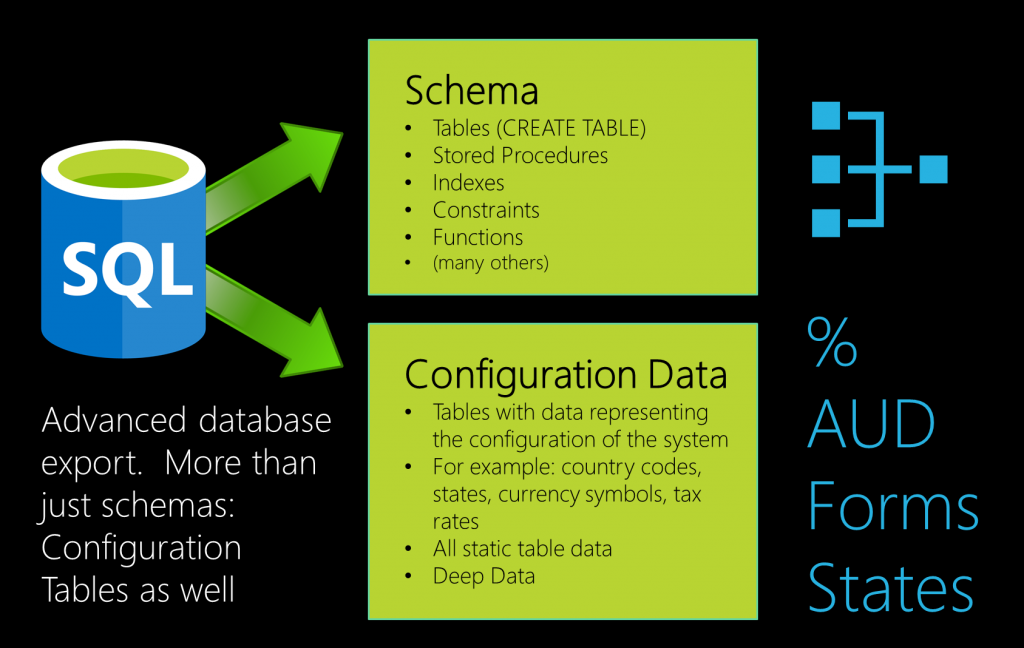Products
Enterprise Devops Tools
Devops Tools for Enterprise Systems
DevOps is a set of practices that works to automate and integrate the processes between software development and IT teams, so they can build, test, and release software faster and more reliably. ExaOps provides a complete system for managing both the content, code and configuration of these systems, improving the ability of developers and managers to track changes in these core business systems and reduce the effort and time involved in each release cycle.
Elite 3E Devops
Aderant Devops
Devops Tools for Databases
ExaOps advanced tools for database includes facilities such as automatically exporting the entire schema and related control / setup tables to disk and from there to source control management (SCM) systems such as Git.
This permits a clear and automated tracking and tracing of changes to databases across the organisation. Detailed change reports and change tracing facilities are included, along with approaches to change roll-backs to changes.
Devops within a database includes:
- Manage change from Development systems to Production systems
- Source code Governance:
- Automatically include these changes in source code tracking activities
- Alert if changes have been made without appropriate processes occurring
- Automated Deployment: automatically deploy changes (following approval) as part of a full-cycle DevOps solution
- Risk management: find and monitor system data that could have major impacts if accidentally changed in production
- Compliance: identify data that does not meet compliance guidelines for a specific organisational need
- Monitor: continually monitor systems for changes that break Compliance or Risk needs and raise an alert if necessary

Databases consist of three main pieces of information, all of which can be automatically identified, monitored and alerted on using the ExaOps system. These three types of content are:
- The Database Schema
- Control table contents
- Transactional content
Schema: The database schema consists of the table definitions, indexes, stored procedures, data types and all other aspects of a database (excepting the data).
Control table data: Control tables are those tables that typically contain static system data such as tax rates, workflow and TEXT/ BLOB content containing scripts. In some cases the content such as VBA are stored within Microsoft Excel or Word..
Transactional Data: Transactional data is the information that drives day-to-day activities and is typically reported monthly. It includes client tables, revenue / expenses, time recording, matter documents and all other information related to a specific matter, case, customer or project.






